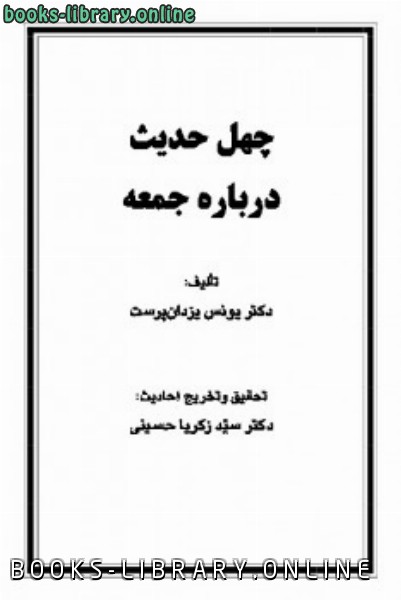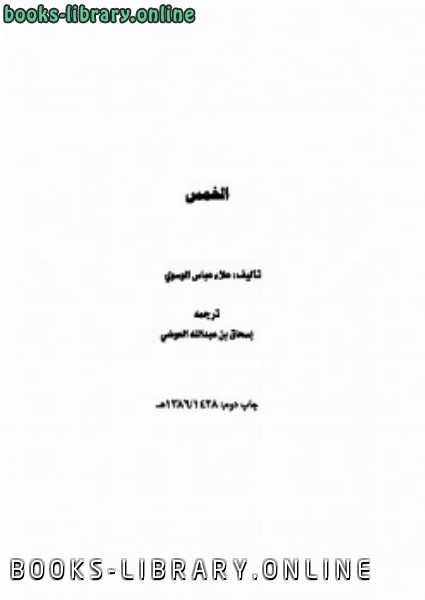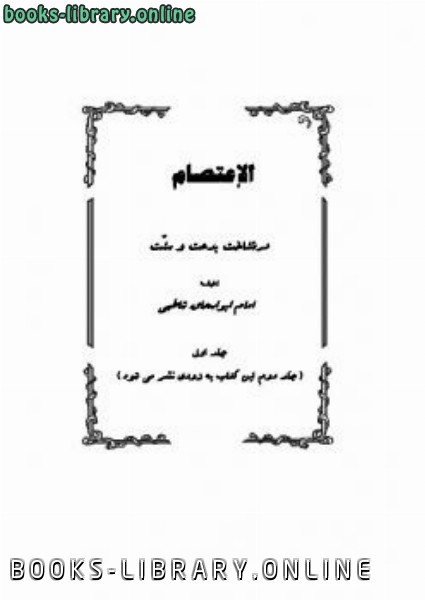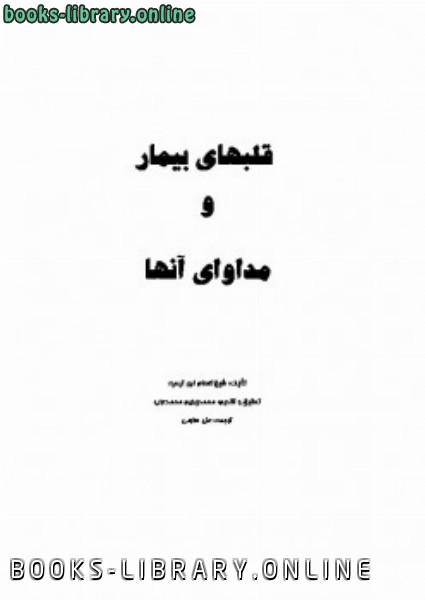كتاب Weakness of Faith
Praise be to Allah, we praise Him and seek His help and forgiveness. We seek refuge with Allah from the evil of our own souls and from our evil deeds. Whomever Allah guides, none can lead astray, and whomever Allah leaves astray, none can guide. I bear witness that there is no god except Allah alone, with no partner or associate, and I bear witness that Muhammad is His slave and Messenger. “O you who believe! Fear Allah as He should be feared, and die not except in a state of Islam (as Muslims), with complete submission to Allah.” [Aal ‘Imraan 3:102 – interpretation of the meaning]. “O mankind! Be dutiful to your Lord, Who created you from a single person (Adam) and from him He created his wife (Hawwa), and from them both he created many men and women, and fear Allah through Whom you demand your mutual (rights), and (do not cut the relations of) the wombs (kinship). Surely, Allah is Ever an All-Watcher over you.” [al-Nisa’ 4:1 – interpretation of the meaning] “O you who believe! Keep your duty to Allah and fear Him, and speak (always) the truth. He will direct you to do righteous good deeds and will forgive you your sins. And whosoever obeys Allah and His Messenger, he has indeed achieved a great achievement (i.e., he will be saved from the Hell-fire and made to enter Paradise).” [al-Ahzaab 33:70-71 – interpretation of the meaning]. The phenomenon of weak faith has become very widespread among Muslims, and many people complain about the hardness of their hearts. So often we hear the words, “I feel hardness in my heart,” “I do not find any joy in worship,” “I feel that my faith has hit rock bottom,” “Reading Qur’aan does not move me,” “I fall into sin so easily.” The effects of this affliction can be seen in many people, and this problem is the cause of every disaster and adversity. The issue of people’s hearts is an important and sensitive issue. The heart is called qalb in Arabic because it changes so quickly and frequently (taqallub – alteration, variation, ups and downs). The Prophet (peace and blessings of Allah be upon him) said: “The heart (qalb) takes its name from its constant changes (taqallub). The likeness of the heart is that of a feather at the root of a tree, being turned over and over by the wind.” (Reported by Ahmad, 4/408; Saheeh al-Jaami’, 2364). According to another report: “The likeness of the heart is that of a feather in an empty plot of land, being blown over and over by the wind.” (Reported by Ibn Abi ‘Aasim in Kitaab al-Sunnah. No. 227. Its isnaad is saheeh, see Zilaal al-Jannah fi Takhreej al-Sunnah by al-Albaani, 1/102). Man’s heart changes constantly, as the Prophet (peace and blessings of Allah be upon him) described: “The heart of the son of Adam changes more quickly than a pan of rapidly The Phenomenon of weak faith has become very widespread among Muslims and many people complain about the hardness of their hearts. So often we hear the words, I feel hardness in my heart, I do not find any joy in worship, I feel that my faith has hit rock bottom, reading Quran does not move me, I fall into sin so easily. The effects of this affliction can be seen in many people, and this problem is the cause of every disaster and adversity.محمد صالح المنجد - «محمد صالح» المنجد (13 يونيو 1961 -) (30 ذو الحجة 1380 هـ -) فقيه وداعية سوري من أصل فلسطيني مُقيم في السعودية، ولد لأبوين فلسطينيين لاجئين في سوريا، ثم سافر أهله إلى السعودية فنشأ وترعرع هناك حتى نال درجة البكالوريوس من جامعة الملك فهد للبترول والمعادن. ❰ له مجموعة من الإنجازات والمؤلفات أبرزها ❞ ظاهرة ضعف الإيمان الأعراض الأسباب العلاج ❝ ❞ كيف عاملهم صلى الله عليه وسلم ❝ ❞ كيف تقرأ كتابا؟ ❝ ❞ مفسدات القلوب: النفاق ❝ ❞ اترك أثرا قبل الرحيل ❝ ❞ 70 مسألة في أحكام الصيام ❝ ❞ أعمال القلوب: التقوى ❝ ❞ أحداث مثيرة فى حياة الشيخ العلامة الألبانى ❝ ❞ Pojava slabljenja imana simptomi uzroci i liječenje ❝ الناشرين : ❞ موقع دار الإسلام ❝ ❞ العبيكان للنشر ❝ ❞ دار الإسلام للنشر والتوزيع ❝ ❞ دار الوطن للطباعة والنشر والتوزيع - السعودية ❝ ❞ دار الوطن للطباعة والنشر والعلاقات العامة ❝ ❞ مدار الوطن للنشر ❝ ❞ دار الإيمان للطبع والنشر والتوزيع ❝ ❞ مكتب الدعوة بالربوة ❝ ❞ مجموعة زاد للنشر ❝ ❞ شركة سفير ❝ ❞ مكتبة السنة ❝ ❱
من كتب إسلامية بلغات أخرى - مكتبة كتب إسلامية.

قراءة كتاب Weakness of Faith أونلاين
معلومات عن كتاب Weakness of Faith:
with Allah from the evil of our own souls and from our evil deeds. Whomever Allah guides,
none can lead astray, and whomever Allah leaves astray, none can guide. I bear witness that
there is no god except Allah alone, with no partner or associate, and I bear witness that
Muhammad is His slave and Messenger. “O you who believe! Fear Allah as He should be
feared, and die not except in a state of Islam (as Muslims), with complete submission to
Allah.” [Aal ‘Imraan 3:102 – interpretation of the meaning].
“O mankind! Be dutiful to your Lord, Who created you from a single person (Adam)
and from him He created his wife (Hawwa), and from them both he created many men and
women, and fear Allah through Whom you demand your mutual (rights), and (do not cut the
relations of) the wombs (kinship). Surely, Allah is Ever an All-Watcher over you.” [al-Nisa’
4:1 – interpretation of the meaning]
“O you who believe! Keep your duty to Allah and fear Him, and speak (always) the
truth. He will direct you to do righteous good deeds and will forgive you your sins. And
whosoever obeys Allah and His Messenger, he has indeed achieved a great achievement (i.e.,
he will be saved from the Hell-fire and made to enter Paradise).” [al-Ahzaab 33:70-71 –
interpretation of the meaning].
The phenomenon of weak faith has become very widespread among Muslims, and
many people complain about the hardness of their hearts. So often we hear the words, “I feel
hardness in my heart,” “I do not find any joy in worship,” “I feel that my faith has hit rock
bottom,” “Reading Qur’aan does not move me,” “I fall into sin so easily.” The effects of this
affliction can be seen in many people, and this problem is the cause of every disaster and
adversity.
The issue of people’s hearts is an important and sensitive issue. The heart is called qalb
in Arabic because it changes so quickly and frequently (taqallub – alteration, variation, ups
and downs). The Prophet (peace and blessings of Allah be upon him) said: “The heart (qalb)
takes its name from its constant changes (taqallub). The likeness of the heart is that of a
feather at the root of a tree, being turned over and over by the wind.” (Reported by Ahmad,
4/408; Saheeh al-Jaami’, 2364). According to another report: “The likeness of the heart is that of
a feather in an empty plot of land, being blown over and over by the wind.” (Reported by Ibn
Abi ‘Aasim in Kitaab al-Sunnah. No. 227. Its isnaad is saheeh, see Zilaal al-Jannah fi Takhreej al-Sunnah
by al-Albaani, 1/102).
Man’s heart changes constantly, as the Prophet (peace and blessings of Allah be upon
him) described: “The heart of the son of Adam changes more quickly than a pan of rapidly
The Phenomenon of weak faith has become very widespread among Muslims and many people complain about the hardness of their hearts. So often we hear the words, I feel hardness in my heart, I do not find any joy in worship, I feel that my faith has hit rock bottom, reading Quran does not move me, I fall into sin so easily. The effects of this affliction can be seen in many people, and this problem is the cause of every disaster and adversity.
للكاتب/المؤلف : محمد صالح المنجد .
دار النشر : .
عدد مرات التحميل : 4285 مرّة / مرات.
تم اضافته في : الأربعاء , 27 مارس 2019م.
حجم الكتاب عند التحميل : 253.4 كيلوبايت .
تعليقات ومناقشات حول الكتاب:
Praise be to Allah, we praise Him and seek His help and forgiveness. We seek refuge
with Allah from the evil of our own souls and from our evil deeds. Whomever Allah guides,
none can lead astray, and whomever Allah leaves astray, none can guide. I bear witness that
there is no god except Allah alone, with no partner or associate, and I bear witness that
Muhammad is His slave and Messenger. “O you who believe! Fear Allah as He should be
feared, and die not except in a state of Islam (as Muslims), with complete submission to
Allah.” [Aal ‘Imraan 3:102 – interpretation of the meaning].
“O mankind! Be dutiful to your Lord, Who created you from a single person (Adam)
and from him He created his wife (Hawwa), and from them both he created many men and
women, and fear Allah through Whom you demand your mutual (rights), and (do not cut the
relations of) the wombs (kinship). Surely, Allah is Ever an All-Watcher over you.” [al-Nisa’
4:1 – interpretation of the meaning]
“O you who believe! Keep your duty to Allah and fear Him, and speak (always) the
truth. He will direct you to do righteous good deeds and will forgive you your sins. And
whosoever obeys Allah and His Messenger, he has indeed achieved a great achievement (i.e.,
he will be saved from the Hell-fire and made to enter Paradise).” [al-Ahzaab 33:70-71 –
interpretation of the meaning].
The phenomenon of weak faith has become very widespread among Muslims, and
many people complain about the hardness of their hearts. So often we hear the words, “I feel
hardness in my heart,” “I do not find any joy in worship,” “I feel that my faith has hit rock
bottom,” “Reading Qur’aan does not move me,” “I fall into sin so easily.” The effects of this
affliction can be seen in many people, and this problem is the cause of every disaster and
adversity.
The issue of people’s hearts is an important and sensitive issue. The heart is called qalb
in Arabic because it changes so quickly and frequently (taqallub – alteration, variation, ups
and downs). The Prophet (peace and blessings of Allah be upon him) said: “The heart (qalb)
takes its name from its constant changes (taqallub). The likeness of the heart is that of a
feather at the root of a tree, being turned over and over by the wind.” (Reported by Ahmad,
4/408; Saheeh al-Jaami’, 2364). According to another report: “The likeness of the heart is that of
a feather in an empty plot of land, being blown over and over by the wind.” (Reported by Ibn
Abi ‘Aasim in Kitaab al-Sunnah. No. 227. Its isnaad is saheeh, see Zilaal al-Jannah fi Takhreej al-Sunnah
by al-Albaani, 1/102).
Man’s heart changes constantly, as the Prophet (peace and blessings of Allah be upon
him) described: “The heart of the son of Adam changes more quickly than a pan of rapidly
٣
boiling water.” (Ibid., no. 226. Its isnaad is saheeh: Zilaal al-Jannah, 1/102), According to another
report: “It changes more than a pot of rapidly boiling water.” (Reported by Ahmad, 6/4; Saheeh
al-Jaami’, no. 5147).
Allah is the One Who turns hearts around and controls them. ‘Abd-Allah ibn ‘Amr ibn
al-‘Aas reported that he heard the Messenger of Allah (peace and blessings of Allah be upon
him) say: “The hearts of the children of Adam are as one between the fingers of the Most
Merciful, and He turns them in whatever way He wills.” Then he said: “O Allah, Controller of
the hearts, direct our hearts to obey You.” (Reported by Muslim, no. 2654).
Allah tells us that:
“... Allah comes in between a person and his heart (i.e., He prevents an evil person
from deciding anything)...” [al-Anfaal 8:24 – interpretation of the meaning]
no one will be saved on the Day of Resurrection “except him who brings to Allah a
clean heart [free from shirk and hypocrisy].” [al-Shu’ara’ 26:89 – interpretation of the
meaning]
“those whose hearts are hardened” [al-Hajj 22:53 – interpretation of the meaning] are
doomed
and the promise of Paradise is for those “who feared the Most Beneficent (Allah) in the
Unseen, (i.e., in the worldly life, before seeing and meeting Him), and brought a heart turned
in repentance (to Him).” [Qaaf 50:33 – interpretation of the meaning].
So the believer must check his heart, find out the nature and cause of the problem, and
start treating it straight away, before it overwhelms him and destroys him. The matter is of the
utmost seriousness, for Allah has warned us against the heart that is hardened, closed, sick,
blind and sealed.
There follows a discussion of the symptoms of weak faith, what causes it and how it
may be treated. I ask Allah to benefit me and my Muslim brothers through this work, and to
richly reward all those who have played a part in producing this book, for He is the One
Whom we ask to soften our hearts and guide us. He is our Protector, He is sufficient for us
and He is the Best Disposer of affairs.
Symptoms of weak faith
There are a number of symptoms of the sickness of weak faith, including the following:
Falling into sin and committing haraam deeds: there are some sinners who commit a sin
and persist in it, and some who commit many kinds of sin. When a person commits many
sins, sin becomes a habit which he gets used to, and then he no longer feels that it is
abhorrent. He gradually reaches a stage where he commits the sin openly, and thus becomes
one of those referred to in the hadeeth: “All of my ummah will be fine except for those who
commit sin openly, an example of which is a man who does something at night, and when
٤
morning comes and Allah has concealed his sin, he says, ‘O So-and-so, I did such and such
yesterday.’ His Lord had covered his sin all night, but he has uncovered what Allah had
concealed.” (Reported by al-Bukhaari, Fath 10/486).
Feeling that one’s heart is hard and rough. A man may feel that his heart has turned to
stone which nothing can penetrate or reach. Allah says (interpretation of the meaning): “Then,
after that, your hearts were hardened and became as stones or even worse in hardness...” [al-
Baqarah 2:74]. The person whose heart is hard will not be moved by reminders of death or by
seeing deceased persons or funerals. He may even carry a dead person to his grave and throw
earth into the grave, but when he walks between the graves it is as if he is merely walking
between rocks.
Not doing acts of worship properly. His mind wanders and he fails to concentrate
properly when praying, reading Qur’aan, making du’aa’, etc. He does not think about what he
is saying, and he recites the words as the matter of boring habit, if he does these regularly at
all. If he has the habit of praying a certain du’aa’ at certain times, according to the sunnah, he
does not think about the meaning of what he is saying, and Allah “does not accept the du’aa’
of one whose heart is heedless of Him.” (Reported by al-Tirmidhi, no. 3479; al-Silsilah al-Saheehah,
594).
Laziness and carelessness in performing acts of worship. If he does them at all, they are
just empty movements, devoid of any real feeling. Allah has described the hypocrites thus
(interpretation of the meaning): “... and when they stand up for prayer, they stand up with
laziness...” [al-Nisa’ 4:142]. This also includes neglecting to make the most of special
occasions and times for worship. This indicates that a person has no interest in earning
reward, so he may delay going for Hajj although he is able to do so, or fail to go for jihaad
when he has the strength to do so, or fail to attend prayers in congregation, or even Salat al-
Jumu’ah. The Messenger of Allah (peace and blessings of Allah be upon him) said: “People
will keep holding back from being in the first row (of congregational prayers), until Allah
throws them into the Fire.” (Reported by Abu Dawood, no. 679; Saheeh al-Targheeb, no. 510). This
kind of person does not feel any remorse or guilt if he sleeps and misses one of the obligatory
prayers, or a sunnah prayer that is strongly encouraged, or a wird [regular du’aa’ and dhikr].
He does not want to make it up later, and he deliberately omits doing anything that is sunnah
or fard kifaayah (a duty which, if carried out by some of the people, is no longer obligatory on
all, but if no-one does it, all are held accountable). So he may not attend Eid prayers (although
some scholars say that they are obligatory), or offer the prayers to be said at the time of lunar
and solar eclipses, or attend funerals. He does not care about reward at all, which is the
opposite of the ideal described by Allah in the Qur’aan (interpretation of the meaning): “...
they used to hasten on to do good deeds, and they used to call on Us with hope and fear, and
used to humble themselves before Us.” [al-Anbiya’ 21:90]
Another example of laziness in performing acts of worship is the neglect of sunnah
actions which the Prophet (peace and blessings of Allah be upon him) performed regularly,
and praying at night (qiyaam al-layl), setting out early to go to the mosque, and other naafil
prayers, such as duhaa, never even occur to him, let alone the two-rak’ahs of tawbah
(repentance) and istikhaarah.
٥
The Phenomenon of weak faith has become very widespread among Muslims and many people complain about the hardness of their hearts. So often we hear the words, I feel hardness in my heart, I do not find any joy in worship, I feel that my faith has hit rock bottom, reading Quran does not move me, I fall into sin so easily. The effects of this affliction can be seen in many people, and this problem is the cause of every disaster and adversity.
 مهلاً !
مهلاً !قبل تحميل الكتاب .. يجب ان يتوفر لديكم برنامج تشغيل وقراءة ملفات pdf
يمكن تحميلة من هنا 'تحميل البرنامج'

نوع الكتاب : pdf.
اذا اعجبك الكتاب فضلاً اضغط على أعجبني و يمكنك تحميله من هنا:


كتب اخرى في كتب إسلامية بلغات أخرى

Islamic Principles for the Muslim rsquo s Attitude during Fitan PDF
قراءة و تحميل كتاب Islamic Principles for the Muslim rsquo s Attitude during Fitan PDF مجانا
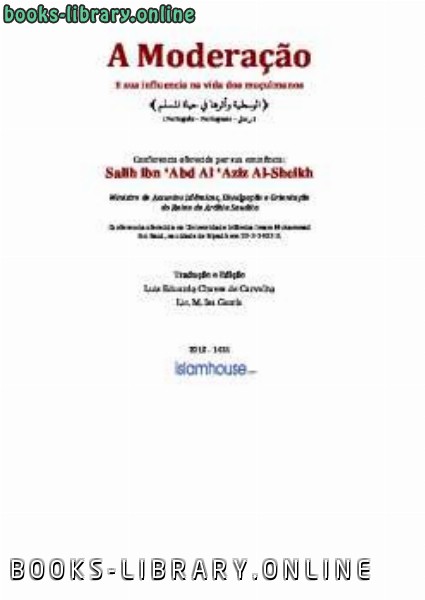
A Modera ccedil atilde o e sua influencia na vida dos mu ccedil ulmanos PDF
قراءة و تحميل كتاب A Modera ccedil atilde o e sua influencia na vida dos mu ccedil ulmanos PDF مجانا



